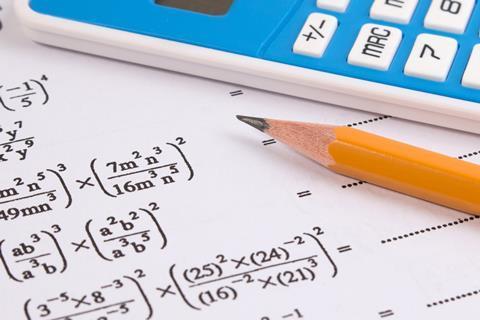GCSE science examinations are set for a shake up

GCSE science examinations are set for a shake up after a report by the qualifications and examinations regulator Ofqual, published in March, highlighted concerns that the latest GCSE science specifications have led to 'a fall in the quality of science assessments'.
The report - The new GCSE science examinations. Findings from the monitoring of the new GCSE science specifications: 2007 to 2008 - focuses on specifications offered by the England-based awarding bodies (AQA, Edexcel and OCR) in GCSE science and GCSE additional science, introduced for first teaching in September 2006.
Assessment issues
The regulator found that the methods of assessment used across the specifications for both courses varied to such an extent, in the type of questions or tasks set and in the weighting of internal and external assessments, that it questioned whether grades could be reliably compared across the awarding bodies.
A recurring concern for Ofqual in its review of awarding bodies' question papers was that they provided insufficient opportunity for more able students to demonstrate the extent of their scientific knowledge, understanding and skills because of the prevalence of multiple-choice questions and short-answers which were limited in the scientific content they could address. Some of the wrong answers provided in multiple-choice questions were considered 'too obviously incorrect' while other questions failed to assess the broader aspects of 'how science works'.
The awarding bodies have already taken steps to address these problems, which will affect the 2009 GCSE science examinations. Tighter marking criteria have been requested by Ofqual to ensure that 'only answers deserving of the marks are credited'. Edexcel and OCR have dealt with issues relating to internal assessment of their GCSE science specifications while AQA will be bringing into effect in September 2009 revised investigative skills assignments in which more of the questions require students to use data collected through their practical work.
In the longer-term Ofqual has asked the Qualifications and Curriculum Authority (QCA) to take on board criticisms made in the report as it revises the GCSE science criteria this year. Approved by Ofqual, the revised GCSE science criteria will inform new specifications developed by the awarding bodies for first teaching in September 2011.
Schools Minister Jim Knight commented that the issues raised by the Ofqual report rest with the assessment of GCSE science, and are not a reflection on hard-working teachers or their pupils, pointing to results of the TIMSS 2007 study as evidence for the achievements of English students in science.
Support for triple science
In support of Ofqual's call that GCSE exams challenge the best science students, Knight announced that the triple science support programme, run by the Learning Skills Network (LSN), will continue to expand by providing extra training events for 2000 teachers and through the roll out of a national programme of coaching and mentoring for non-specialist physics and chemistry teachers. The LSN will also receive an additional £100,000 to target up to 20 local authorities with no or minimal take up of triple science in their schools.
Ofqual is currently conducting reviews into standards in GCSE chemistry and biology over time and across specifications. The reviews follow the publication, in March, of the standards review of GCSE physics (2002-07), which identified 'a decline in the standards of performance' in the subject. The outcomes of these reviews will feed into the development of the new criteria.
The report on the GCSE science exams is available to download from the Ofqual website.








No comments yet